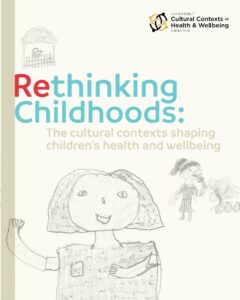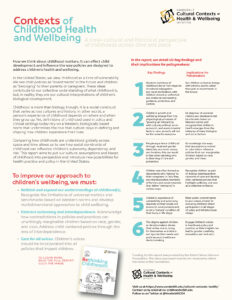Rethinking Childhoods Brief

Understanding how culture, not just biology, shapes children’s health and wellbeing can lead to better policies for all. In the United States, cultural norms tell us that children “belong” to their caregivers and are “investments” in the future. A new report by the Vanderbilt Cultural Contexts of Health and Wellbeing Initiative suggests that these norms may be creating barriers, particularly for children in low-income areas facing discrimination. By comparing how childhoods are understood globally, the report introduces new possibilities for health practice and policy in the U.S. 
Learn how decision-makers in El Salvador, Guatemala, Scotland, and New Zealand are working to center children’s voices in policymaking and community building. And discover how inviting children’s engagement can lead to better policies and better health for all kids in the United States.
Download the full report Rethinking Childhoods: The Cultural Contexts Shaping Children’s Health and Wellbeing or read a one-page summary of our work here. Also you can read the digital version of the report in ISSUU.
